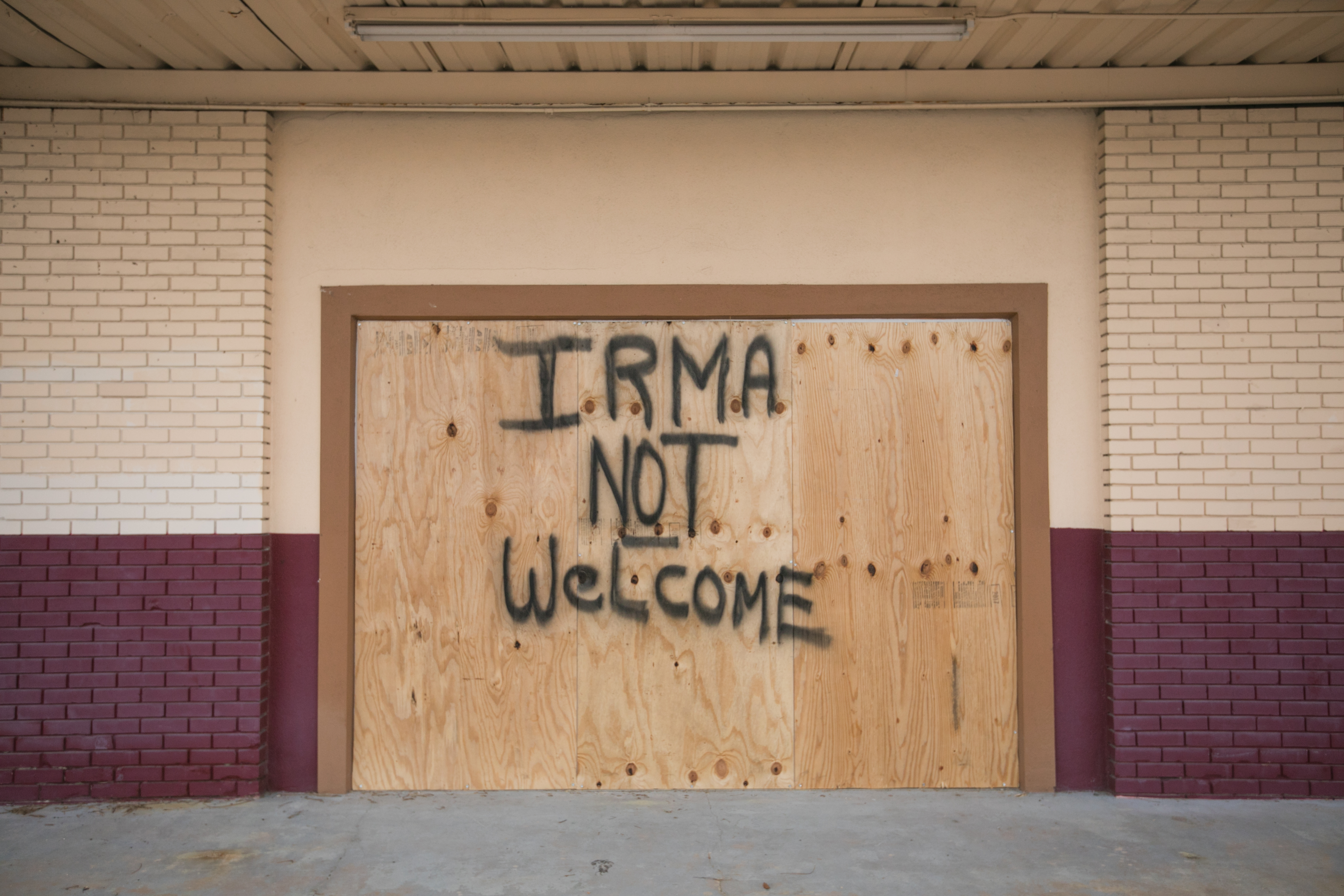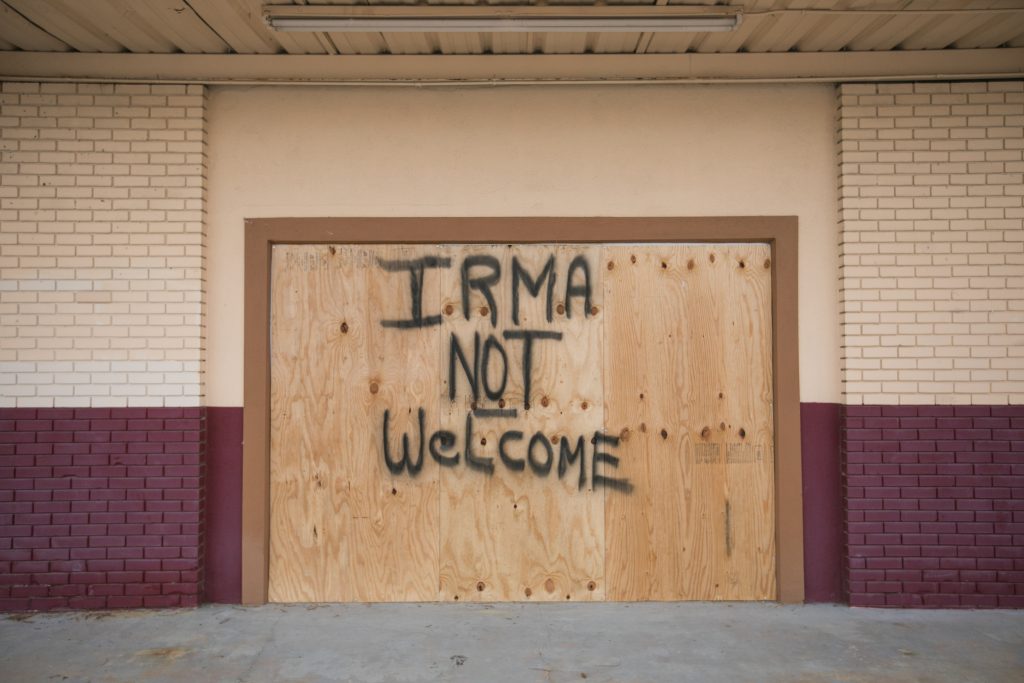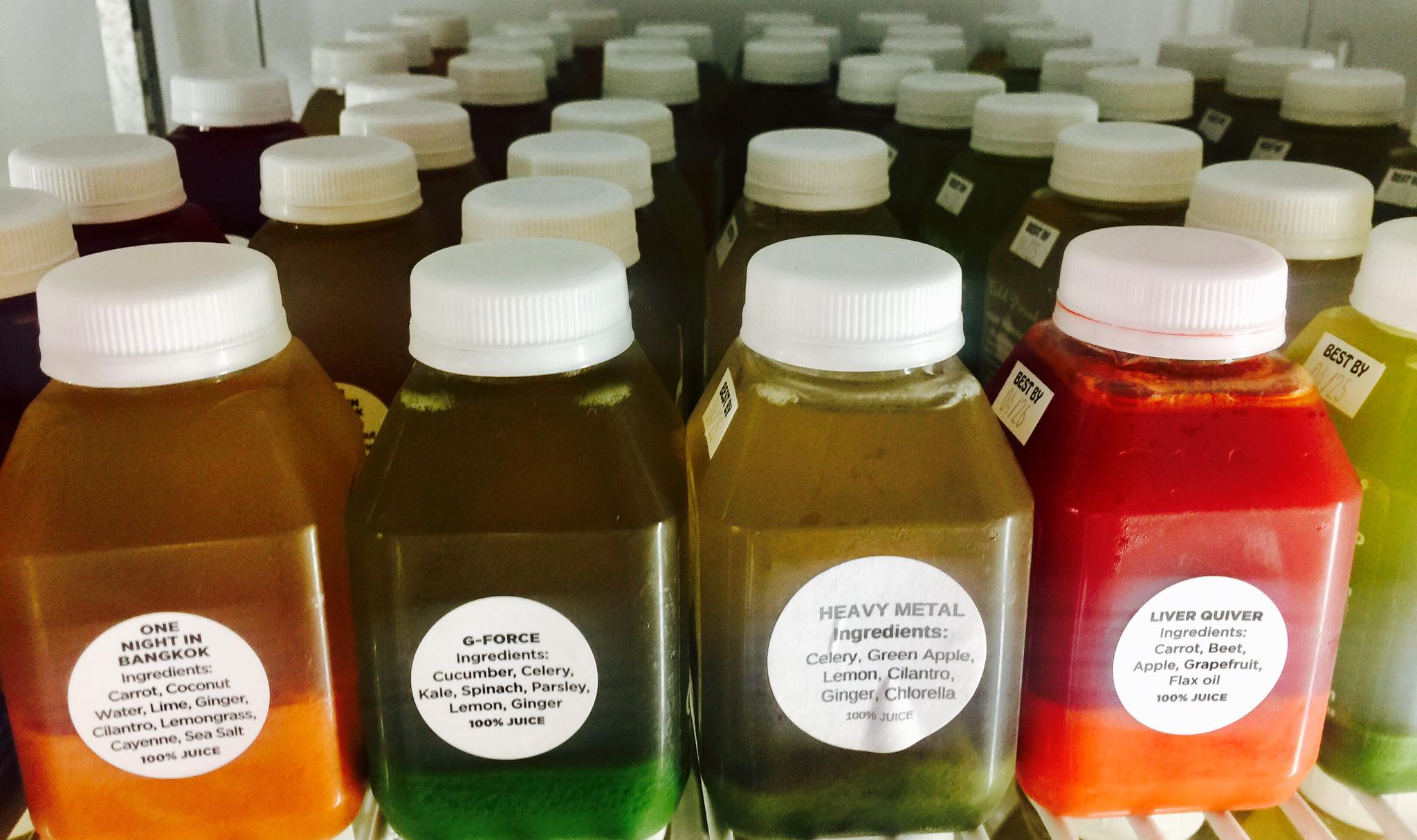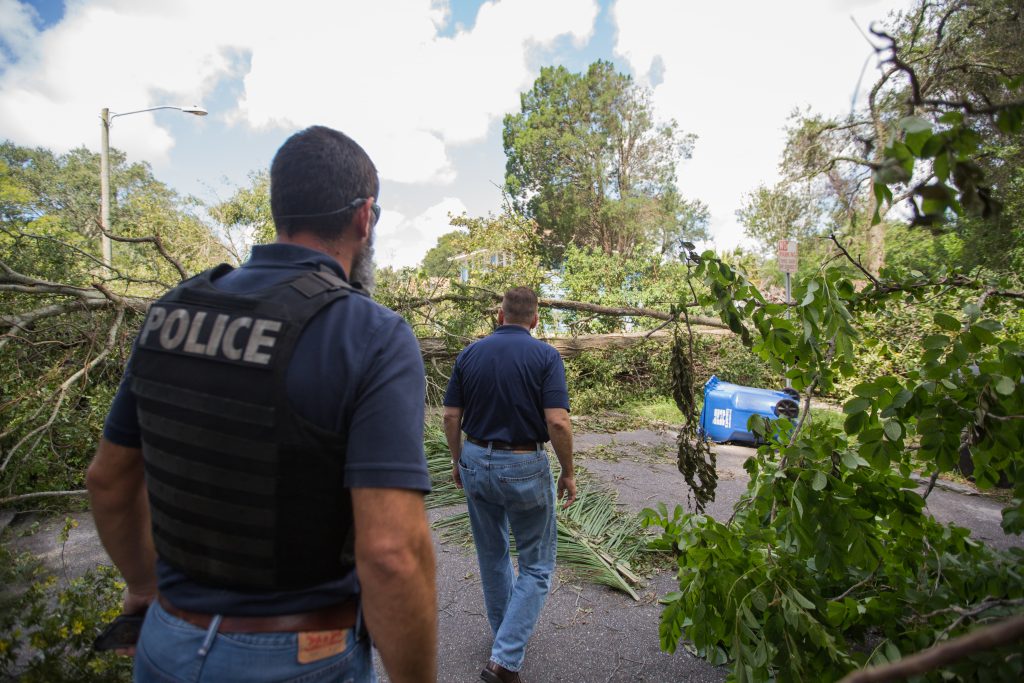
We sat down for a special conversation with Squeeze Juice Works owner, Kelly Lessem. Kelly shared the effects of Irma on her small business, her employees, and her life. Listen above for her story. You’ll also find resources available for small businesses and their employees to get back on their feet after this storm.

Hurricane Irma swept through nearly the entire state of Florida last week. The major hurricane had devastating effects on infrastructure, nature, schools, and homes in the Florida Keys and southwest Florida, but its wrath could be felt throughout the state, sparing only sections of the Panhandle region. Millions of Floridians, nearly 70% of the state, spent multiple days without power following this deadly storm. The storm and its aftermath has been hard-hitting in many areas, but perhaps its largest and most lasting effects are those rippling through the small business community.
A drive through the streets of St. Petersburg on Saturday and early Sunday showed businesses preparing. The images were haunting. Once lively, churning businesses sat at a stand-still. Bustling streets were empty. Beach Drive was a ghost town. Central Avenue closed down as the winds picked up. The arteries of the city stopped up to prepare. Patios normally packed for weekend brunch were empty, even of their furniture. Windows were covered with plywood, and messages to the hurricane screamed out in black or red paint “Irma NOT Welcome” or “Go Away Irma”. The winds whipped through the night and into the next morning as Irma made landfall and climbed her way up the state.
On Monday, St. Pete’s citizens and business owners stepped out from their various shelters and into the world again. We were lucky. Most of our infrastructure was spared. Most homes were spared. Flooding was minimal. We dodged a bullet. We heaved sighs of relief only to catch our breath back up in our chests – “What now?” Without electricity, storefronts sat boarded for days. No power, no refrigeration, no ability to open for business or take credit cards. A lucky few were open within 24 hours, serving hungry and cabin-fever riddled residents. But many small businesses remained closed for the entire week, waiting for the lights to come back on. Small business owners assessed the damages – the days closed, the missing employees evacuated to other states, the spoiled food or beer, the cancelled money-making events – weddings, concerts, or private parties. We came out lucky, but not unscathed. Our small businesses will be rebuilding for weeks and months to come.

Business Owners and Employees alike can benefit from the hurricane victim assistance programs below, pulled from the FEMA website:
For Employers & Employees:
Residents and business owners in designated areas (Pinellas is one) who sustained damage due to Hurricane Irma, and are able to do so, should apply for assistance by registering online at http://www.DisasterAssistance.gov. Assistance can include grants for temporary housing and home repairs, low-cost loans to cover uninsured property losses and other programs to help individuals and business owners recover from the effects of the disaster.
- Loans from the Small Business Administration (SBA) may be available to help repair flood-related damage to your home or business and replace personal property. The SBA provides low-interest disaster loans of up to $200,000 to repair a primary residence, up to $40,000 for homeowners and renters to replace personal property, and up to $2 million to businesses and most private non-profits for physical damage and economic injury needs as a result of the disaster. Survivors need to register with FEMA first to determine their eligibility for any federal assistance that may be available.
- FEMA’s Transitional Sheltering Assistance (TSA). Through direct payments to lodging providers, TSA is intended to reduce the number of disaster survivors in shelters by transitioning survivors into short-term accommodations. Eligible survivors can find the list of TSA-approved hotels on www.DisasterAssistance.gov, and click on the Transitional Sheltering Assistance (TSA) Program – Participating Hotel List link. If internet access is unavailable, the FEMA Helpline (1-800-621-3362) can assist with locating a participating property. Survivors should contact the hotel directly to secure a hotel room prior to traveling to the hotel.
- Rental Assistance. Assistance through FEMA’s Individual and Households Program may be available to eligible applicants to secure temporary housing while repairs are being made to the pre-disaster primary residence, or while transitioning to permanent housing while applicant survivor is displaced from their primary residence.
- Temporary Blue Roofs. The recent hurricane has left many homeowners with damaged roofs, which can take time to repair. In order to mitigate additional damage that could result from rain, homeowners can have plastic sheeting installed over the damaged area by the U.S. Army Corps of Engineers (USACE). Currently the USACE, FEMA, and local officials in disaster designated areas are conducting assessments for this program. Additional information will be available in the coming days on how to access this type of assistance, but the first step is registering with FEMA for federal assistance.
- Disaster Unemployment Assistance is available for Florida residents whose jobs were affected by Hurricane Irma, specifically those who live or work in the counties included in the major disaster declaration. This may include people not normally eligible for unemployment benefits, such as self-employed persons and farm-workers. They can apply for unemployment benefits online at Florida’s Department of Economic Opportunity.
- Disaster Distress Helpline. The Department of Health and Human Services (HHS) Disaster Distress Helpline (1-800-985-5990) remains open 24/7 for free help coping with the stress of the storm. This toll-free, multilingual, and confidential crisis support service is available to all residents in the United States and its territories. Stress, anxiety, and other depression-like symptoms are common reactions after a disaster.
State of Florida: Florida Disaster Loans: (Interest-free bridge loans)
State officials advise anyone seeking the loans for Hurricane Irma impacts to apply online at the website floridadisasterloan.org. The deadline for Florida Emergency Bridge Loan applications is Oct. 31. Or, visit the website for the Florida Small Business Development Center at UNF, http://floridasbdc.org/

Department of Housing and Urban Development Programs
- Granting immediate foreclosure relief – HUD granted a 90-day moratorium on foreclosures and forbearance on foreclosures of Federal Housing Administration (FHA)-insured home mortgages. There are approximately 280,000 FHA-insured Florida homeowners living in these impacted counties.
- Making mortgage insurance available – HUD’s Section 203(h) program provides FHA insurance to disaster victims who have lost their homes and are facing the daunting task of rebuilding or buying another home. Borrowers from participating FHA-approved lenders are eligible for 100 percent financing, including closing costs;
- Making insurance available for both mortgages and home rehabilitation – HUD’s Section 203(k) loan program enables those who have lost their homes to finance the purchase or refinance of a house along with its repair through a single mortgage. It also allows homeowners who have damaged houses to finance the rehabilitation of their existing single-family home;
Information on housing providers and HUD programs – The Department will share information with FEMA and the State on housing providers that may have available units in the impacted counties. This includes Public Housing Agencies and Multi-Family owners. The Department will also connect FEMA and the State to subject matter experts to provide information on HUD programs and providers. - Assisting the State of Florida and local governments in re-allocating existing federal resources toward disaster relief – HUD’s Community Development Block Grant (CDBG) and HOME programs give the State and communities the flexibility to redirect millions of dollars in annual formula funding to address critical needs, including housing and services for disaster victims. HUD is currently contacting State and local officials to explore streamlining the Department’s CDBG and HOME programs in order to expedite the repair and replacement of damaged housing; and,
- Offering Section 108 loan guarantee assistance – HUD will offer state and local governments federally guaranteed loans for housing rehabilitation, economic development and repair of public infrastructure.
